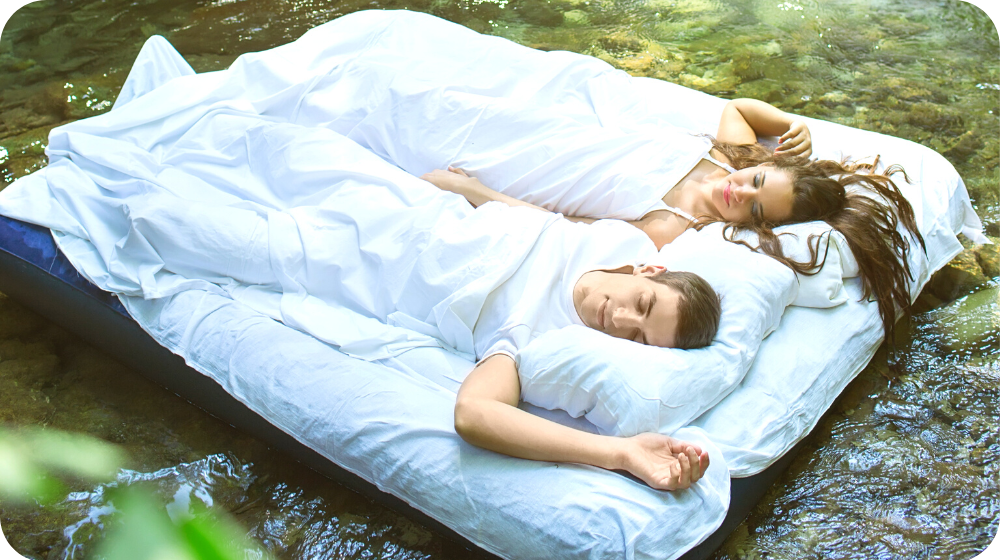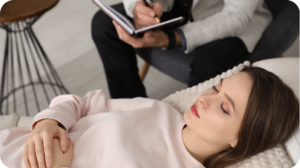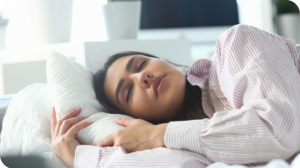Noise and sleep are not natural partners. Or so you would think. Traffic noises, car alarms, sirens and other disturbing sounds can make it hard to get to sleep and difficult to stay there. Some frequencies, however, are actually calming and relaxing, and conducive to slumber. Finding the perfect noise to help you sleep can be key to conquering sleep onset and sleep maintenance issues.

That accounts for the rise in “white noise” machines, electronic devices that replicate the sound of rain, or ocean waves, to lull us to sleep. These can be used to mask existing sounds in, say, an urban environment. But they can also be used as a sleep aid for people who have difficulties falling asleep. However, one size does not fit all when it comes to using noise for sleep. There are, in fact, distinctly different types of noise that can be used for the purpose.
The Three Colors of Noise
Experts divide what most of us think of as “white noise” into three distinct colors: white, pink, and brown.
- White. This includes a full range of frequencies, including low, mid-range, and high. Often associated with the sound of a waterfall. The range of frequencies means that there is a variable nature to white noise—it doesn’t sound like a constant tone. This makes it the best of the three to block out other environmental noise (for instance, if you live on a busy road). Studies have shown that white noise can improve sleep quality for many people, but some people find the fluctuations in sound intensity jarring.
- Pink. More pronounced at low frequencies and hushed at the high end. An example is the sound of soft rainfall. Pink noise has been studied far less, and only more recently, than white noise has. However, preliminary research indicates that pink noise may aid in stabilizing sleep throughout the night and through different sleep cycles. Our ears and brain perceive pink noise as more of a background sound than white noise.
- Brown. Almost exclusively low, deep frequencies. Brown noise brings to mind rushing water, like a fast-moving river. Anecdotal evidence suggests that brown noise may help the brain reach regenerative deep sleep quicker and more efficiently. Most people find it more engaging than white and pink noise.
The best way to determine which noise works best for you is experimentation. There are many phone apps and music service recordings of white noise. Several newer apps offer pink and brown noise options. You can also access sleep noise files on streaming services such as Spotify. Try out different types of noise on different nights to determine which works best for you. You’ll also find a wealth of inexpensive noise machines on the market, including some that offer pink and brown noise options, and free options on websites like YouTube. For more on addressing sleep issues, see our previous post “Managing Insomnia.”
Share some love if you like this post!







